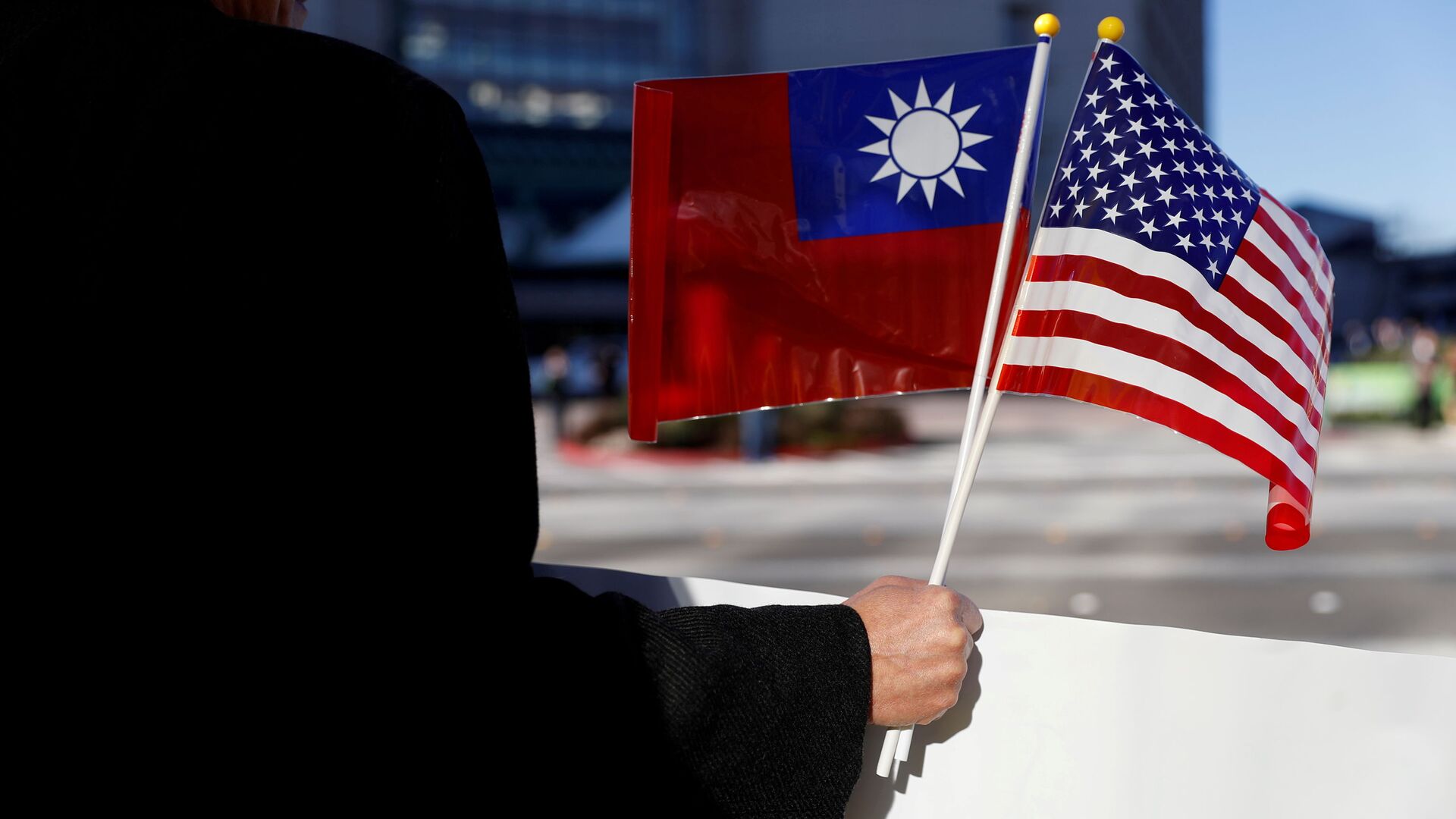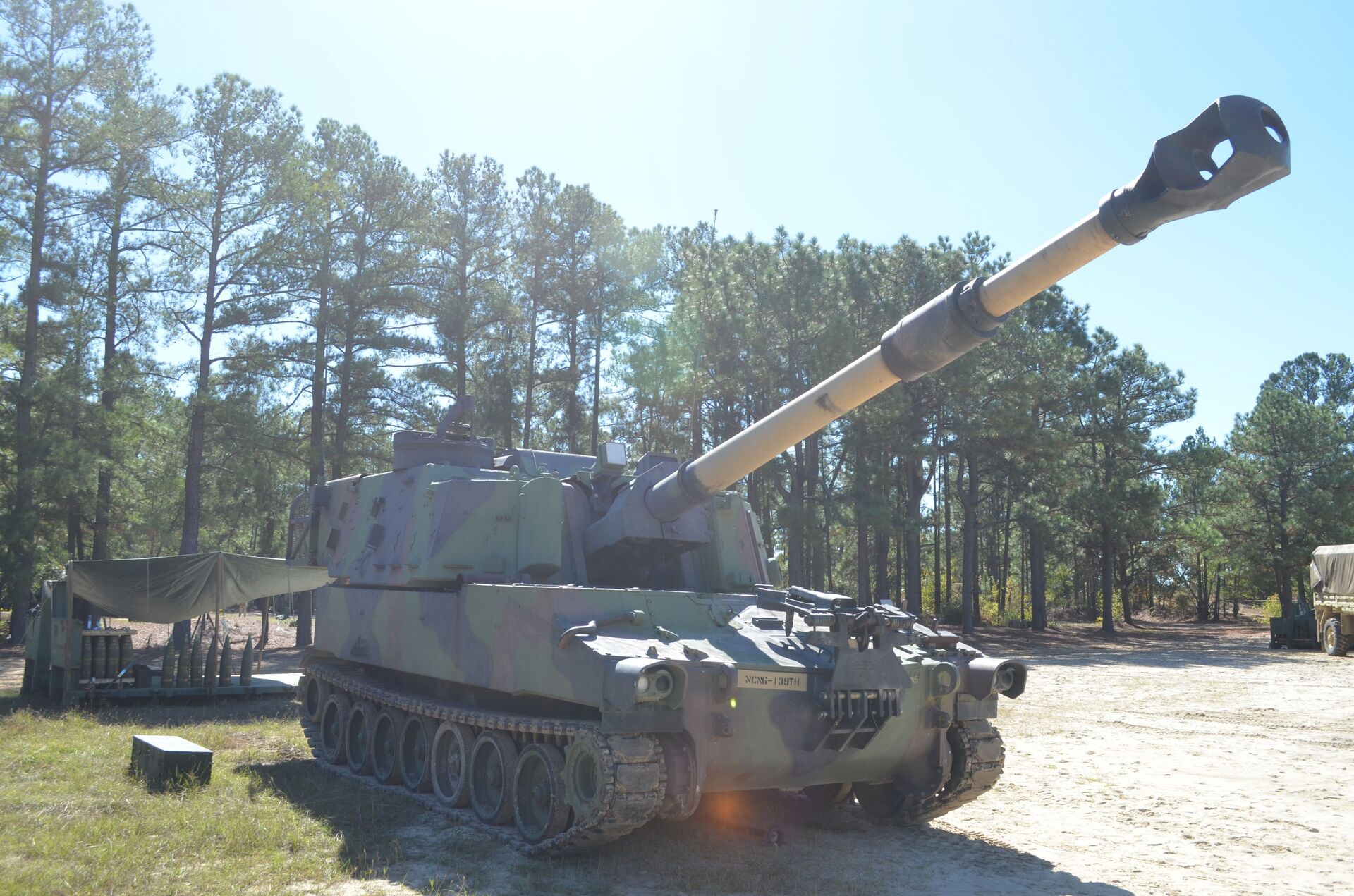Biden Administration Approves First Arms Sale to Taiwan
01:00 GMT 05.08.2021 (Updated: 12:42 GMT 19.06.2023)

© REUTERS / Stephen Lam
Subscribe
Late last year, the Chinese Foreign Ministry imposed sanctions on several US defense contractors, including Lockheed Martin, after learning then-US President Donald Trump's administration approved an arms sale to Taiwan valued at $1.8 billion.
The US Department of State has approved a possible $750 million arms sale to the Taipei Economic and Cultural Representative Office in the United States (TECRO) for dozens of 155mm M109A6 Paladin Medium Self-Propelled Howitzer Systems and related equipment, the Pentagon's Defense Security Cooperation Agency announced in a Wednesday news release.
In addition to 40 Medium Self-Propelled Howitzer Systems, TECRO has requested to purchase 20 M992A2 Field Artillery Ammunition Support Vehicles, five M88A2 Hercules vehicles, five M2 Chrysler Mount .50 caliber machine guns, 1,698 multi-option, Precision Guidance Kits and a single Advanced Field Artillery Tactical Data System (AFATDS).
Raytheon's AFATDS is a software-based fire control and battlefield management system presently utilized by the US military forces.

The M109 Paladin Self-Propelled Howitzer standing ready deep in the southern training areas at Fort Bragg. Nine National Guard troops from North and South Carolina, Florida, Georgia, Mississippi, Illinois and New Jersey are attending the 13 Bravo artillery military occupational specialty (MOS) reclassification course and will learn how to be a crew member on the three main “cannon” artillery weapons systems in the U.S. Army: The M119A3 105mm light towed howitzer, M777A2 155mm medium towed howitzer and the M109A6 Paladin 155mm self-propelled howitzer. Over the course of two days in the field, students will fire hundreds of rounds from all three weapons.
The release highlights that the proposed sale of the Paladin Medium Self-Propelled Howitzer Systems will assist Taiwan in the modernization of its howitzer fleet, "enhancing its ability to meet current and future threats."
Details of the possible arms sale have been forwarded to Congress, which will conduct its own review.
Furthermore, BAE Systems - provider of the howitzers - has to enter into negotiations with Taiwan before the sale can be finalized
Taiwan's defense ministry applauded the Biden Administration's progress on the matter, arguing on Twitter that the arms sale "enables the country to maintain robust self-defense, & regional peace & stability."
We welcome @StateDept's approval of a US$ 750 million arms sale to #Taiwan. The determination demonstrates the #US government's commitment to the #TaiwanRelationsAct & #SixAssurances. It also enables the country to maintain robust self-defense, & regional peace & stability. https://t.co/e6yahizu2T
— 國防部 Ministry of National Defense, R.O.C. 🇹🇼 (@MoNDefense) August 4, 2021
The proposal comes as a continuation of what the US defines as its commitment to the Taiwan Relations Act - a 1979 pledge to assist in maintaining "peace security and stability" in the Western Pacific.
As the US and Taiwan progress, it is likely that China will issue a rebuke, and invoke sanctions against the US-based contractors involved in the sale.
Per the 'One China policy,' Beijing has maintained that Taiwan is its province, and those conducting arms sales to Taiwan are viewed as meddling in Beijing's internal affairs. China is especially uneasy over Taiwan's cooperation with the US in the defense sector.
The United States is increasingly concerned with China’s growing military power in the Indo-Pacific region and strives to scale up its presence there. In June, media reported that the US Defense Department was mulling a deployment of a permanent naval task force in the Pacific.

